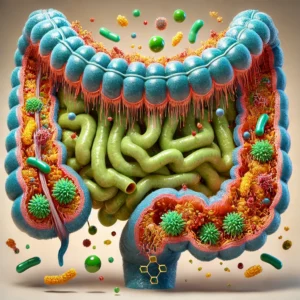Comprehensive Insights into Small Intestinal Bacterial Overgrowth (SIBO) and the Essential Role of Breath Gas Chromatography in Accurate Diagnosis
Small Intestinal Bacterial Overgrowth (SIBO) has gained significant attention as a critical gastrointestinal disorder that profoundly affects digestive health. This condition arises when there is an abnormal increase in the number and/or diversity of bacteria in the small intestine, which is normally less populated than the large intestine. The consequences of this bacterial overgrowth can be quite serious, leading to a variety of digestive symptoms such as bloating, diarrhea, and malabsorption. Furthermore, SIBO has been associated with multiple chronic health issues, making its diagnosis and management crucial for preserving overall health and well-being.
Timely and precise diagnosis is essential for the effective management of SIBO. Among the various diagnostic techniques available, Breath Gas Chromatography has emerged as a vital method for identifying this condition. Moreover, cutting-edge treatment centers like MCR Therapies offer specialized therapies that significantly enhance the management and potential resolution of SIBO. This article will provide a detailed examination of SIBO, exploring its causes, symptoms, and diagnostic strategies, with a special emphasis on the critical importance of Breath Gas Chromatography and the innovative treatment options available at MCR Therapies.
 Deepening Understanding of Small Intestinal Bacterial Overgrowth (SIBO) and Its Health Implications
Deepening Understanding of Small Intestinal Bacterial Overgrowth (SIBO) and Its Health Implications
Small Intestinal Bacterial Overgrowth (SIBO) occurs when there is an excessive proliferation of bacteria in the small intestine, disrupting its normal digestive functions. The small intestine plays a crucial role in the absorption of nutrients and the breakdown of food. When bacteria multiply uncontrollably, they can obstruct these essential processes, leading to significant malabsorption issues and various gastrointestinal disturbances. For those experiencing unexplained digestive problems, grasping the complexities of SIBO is vital, as early detection and intervention can avert further complications. By effectively addressing SIBO, patients can reclaim their digestive health, improve nutrient absorption, and enhance their overall quality of life.
Understanding the Diverse Types of Bacteria That Cause SIBO Symptoms
The bacterial overgrowth associated with SIBO can encompass a wide variety of bacteria, each contributing uniquely to the symptoms experienced by affected individuals. Identifying these specific bacterial types is essential for developing effective treatment and management strategies.
- Aerobic Bacteria: These bacteria, typically found in the small intestine, assist in digestion. However, when they proliferate excessively, they can disrupt normal digestive processes and exacerbate symptoms.
- Anaerobic Bacteria: Normally residing in the colon, these bacteria may overgrow in the small intestine during SIBO, leading to significant digestive complications.
- Methanogens: This group of archaea produces methane gas and is often linked to constipation-predominant SIBO, negatively impacting gut motility and intensifying symptoms.
Uncovering the Fundamental Causes of SIBO Development for Improved Management
Understanding the root causes of SIBO is essential for accurate diagnosis and effective treatment. By addressing these contributing factors, patient outcomes can be significantly enhanced. A variety of conditions may lead to the emergence of this multifaceted disorder.
Identifying Structural Abnormalities That Encourage SIBO
- Diverticula: These small pouches can develop in the intestinal wall, creating environments conducive to bacterial growth and proliferation.
- Strictures or Narrowings: Such
Comments are closed

The discussion around Small Intestinal Bacterial Overgrowth (SIBO) and the critical role of Breath Gas Chromatography in diagnosing it is both timely and necessary. I find it fascinating how our understanding of gut health has evolved, particularly in an age where the microbiome is increasingly recognized as a central player in overall health.